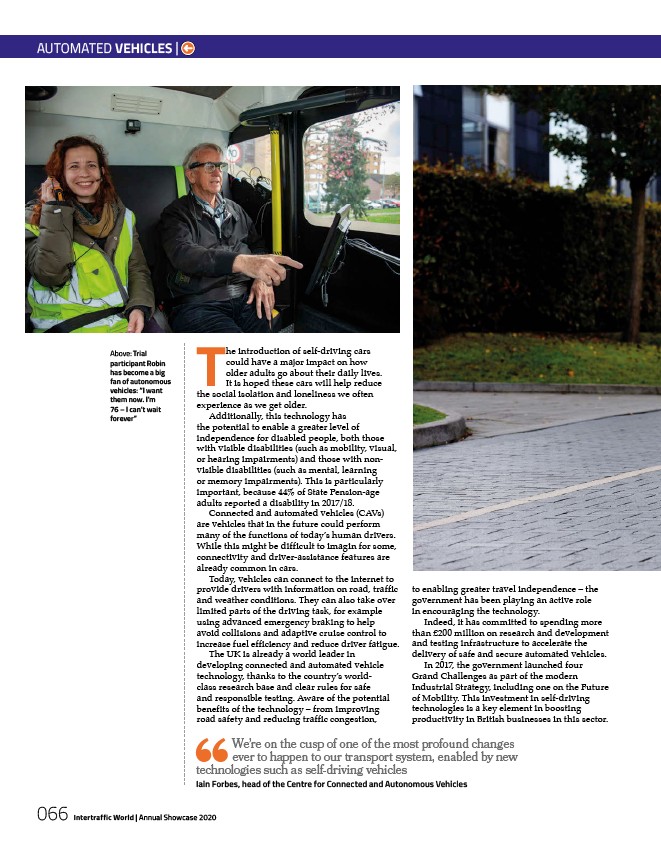
AUTOMATED VEHICLES |
Above: Trial
participant Robin
has become a big
fan of autonomous
vehicles: “I want
them now. I’m
76 – I can’t wait
forever”
The introduction of self-driving cars
066 Intertraffic World | Annual Showcase 2020
could have a major impact on how
older adults go about their daily lives.
It is hoped these cars will help reduce
the social isolation and loneliness we often
experience as we get older.
Additionally, this technology has
the potential to enable a greater level of
independence for disabled people, both those
with visible disabilities (such as mobility, visual,
or hearing impairments) and those with nonvisible
disabilities (such as mental, learning
or memory impairments). This is particularly
important, because 44% of State Pension-age
adults reported a disability in 2017/18.
Connected and automated vehicles (CAVs)
are vehicles that in the future could perform
many of the functions of today’s human drivers.
While this might be difficult to imagin for some,
connectivity and driver-assistance features are
already common in cars.
Today, vehicles can connect to the internet to
provide drivers with information on road, traffic
and weather conditions. They can also take over
limited parts of the driving task, for example
using advanced emergency braking to help
avoid collisions and adaptive cruise control to
increase fuel efficiency and reduce driver fatigue.
The UK is already a world leader in
developing connected and automated vehicle
technology, thanks to the country’s world-
class research base and clear rules for safe
and responsible testing. Aware of the potential
benefits of the technology – from improving
road safety and reducing traffic congestion,
to enabling greater travel independence – the
government has been playing an active role
in encouraging the technology.
Indeed, it has committed to spending more
than £200 million on research and development
and testing infrastructure to accelerate the
delivery of safe and secure automated vehicles.
In 2017, the government launched four
Grand Challenges as part of the modern
Industrial Strategy, including one on the Future
of Mobility. This investment in self-driving
technologies is a key element in boosting
productivity in British businesses in this sector.
We’re on the cusp of one of the most profound changes
ever to happen to our transport system, enabled by new
technologies such as self-driving vehicles
Iain Forbes, head of the Centre for Connected and Autonomous Vehicles